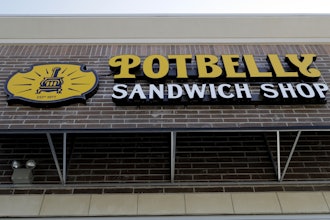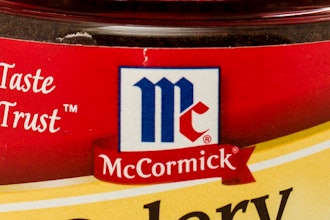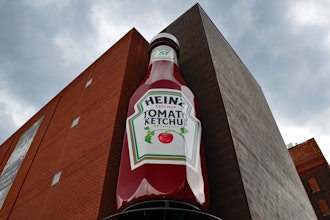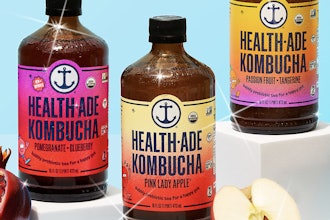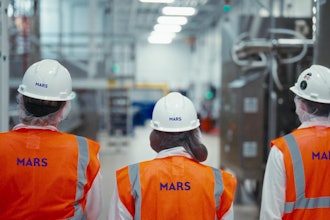
The Triple Bottom Line isn’t a new or novel concept for businesses. Proposed in the early 1990s by British sustainability consultant John Elkington, the Triple Bottom Line serves as a measure of commitment to environmental responsibility. Elkington and his contemporaries argue that people, profit and planet demand the same weight as part of a sustainable business strategy.
The reason we’re hearing more and more about the philosophy today is due to the current climate crisis. When Elkington outlined his vision for the Triple Bottom Line in 1994, he sought to be proactive in slowing the march toward environmental catastrophe. Now, nearly 30 years later, companies are beginning to adopt it out of necessity. Why now and not then? Consumer intelligence stands as a key driver.
People today prioritize environmentalism, and they’re driving corporate change by adapting their own lifestyle choices. Nowhere is this more evident than in food manufacturing. As a result, food manufacturers need to embrace the Triple Bottom Line if they want to meet consumers where they shop.
Environmental mindsets are driving change
How much do shoppers really think about the environment when making a purchase? According to a 2020 study by IBM and the National Retail Federation, more than you might think. According to survey data from 18,980 people, 57% of consumers are willing to change their purchasing habits to help reduce negative environmental impact. More than 40% of customers also identify as “purpose-driven,” which means they specifically seek out brands and products that align with their beliefs — including environmental stewardship.
What does this data look like in practice, at the grocery store? Food manufacturers need look no further than examples like plant-based proteins. While there’s no doubt vegetarian and vegan lifestyles are on the rise — up 3,000% over the last 15 years — people’s decision to buy plant-based foods is largely rooted in environmental and ethical considerations. According to data from Innova Market Insights, 22% of plant-based protein buyers cited environmental or ethical issues as a reason for purchasing these products over traditional options.
Plant-based protein isn’t the only consumer trend forcing food producers to prioritize sustainability. Shoppers are also beginning to look at labels for factors like ethical sourcing, Fair Trade practices and other sustainable initiatives. Simply put: consumers care as much about how the product got to the shelf as what it is or what it costs.
Even voicing concern for environmental stewardship can net food manufacturers a positive reaction from consumers. A 2020 Forbes article on sustainable food-buying trends claims that “54% of consumers try to purchase products or services from brands that take a stand on social or environmental issues.”
It’s time to embrace the Triple Bottom Line
There’s no doubt consumers are driving environmental change within the food manufacturing industry. It’s all producers can do to keep up with shifting demand — especially as long-held staples fall by the wayside, out of favor with new consumer habits. Thankfully, there’s a blueprint for keeping up with consumer demand: the Triple Bottom Line.
The first place food executives need to look is at supply chain and sourcing. Where ingredients and baseline products are sourced from matters, and supply chain sets the tone for the environmental profile of the final product customers will scrutinize. This means sourcing ingredients from sustainable farming operations and local sources, where possible. It also involves striving for a lower emissions profile in transportation of products within the value stream.
Production is also rife with opportunity for environmental stewardship. Ethical considerations are the easiest to tackle and simply raising the standard for quality serves to imbue products with appeal. Take food manufacturing giant Nestlé, for an example of what to avoid. Nestlé is consistently rated as one of the lowest food manufacturers when scored for ethical markers. Several active boycotts against the company stem from its condonement of factory farming — an ethical environmental consideration many shoppers are aware of and vehemently against.
Finally, executives need to be mindful of how they market products, to set consumer expectation. In the information age, false claims are quickly debunked and the wrath of conscious consumerism is swift to relegate falsely advertised products. Executives need to drive real environmental reformation and earn the claims they advertise to consumers. Take, for example, Clif Bar. According to the company’s website, 82% of all ingredients used by the company are organic, 90% of production waste is diverted from landfills and the company uses 100% renewable power for its factories. Related, Clif Bar was the leading nutritional/intrinsic health bar company in the United States in 2020, with more than 282 million units sold.
A focus on planet is a sustainable strategy
For many food manufacturers and executives seeking to realize the Triple Bottom Line, cost becomes an immediate concern. Supply chains don’t reform themselves and sustainable practices require an investment before they yield return. And while the cost of more environmentally friendly initiatives may seem high, it’s an increasingly necessary cost companies need to burden. The good news is that once they do, consumers will take note.
Consider Amy’s Kitchen as an example of the power and longevity of sustainable practices. The company was founded with the Triple Bottom Line in mind, all the way back in 1987, before Elkington officially coined the term. Today, Amy’s Kitchen is a global brand leader in the health food segment, with annual sales exceeding $600 million. And while this figure may pale in comparison to the annual sales figures of PepsiCo, Tyson Foods, Cargill, Mondelez International and the like, it 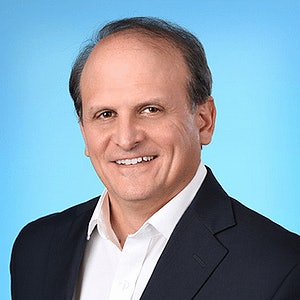 Magnani
Magnani
David Magnani is a Managing Partner for M&A Executive Search and Consulting. He has worked in professional services leadership roles for 25+ years, serving a broad range of industries, including the food industry. Since 2014, Mr Magnani has focused on providing clients the expertise they need to advance their businesses via national executive search, placing interim executives or through expert freelance consultants.









